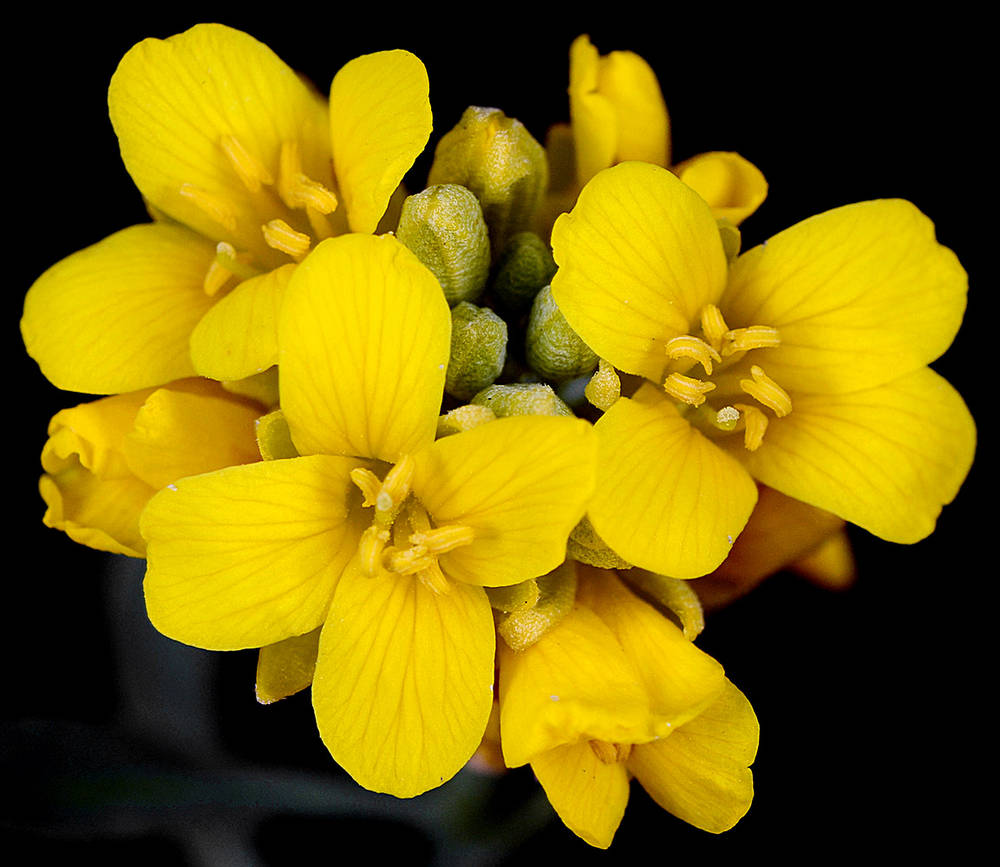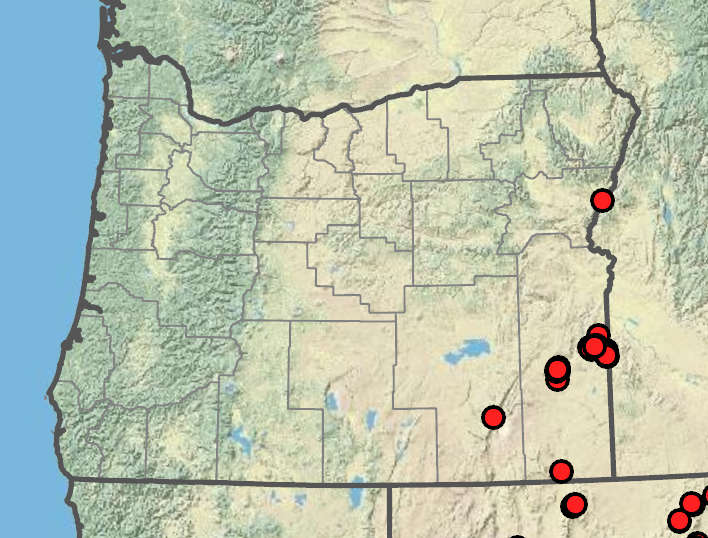Physaria chambersii
Chambers' bladderpod
arising laterally, 5–15 cm.
obovate to orbicular, 3–6 × 1–2 cm;
margins entire or dentate.
spatulate, 1–2 cm × 3–6 mm;
margins entire.
fruiting pedicels divaricate, slightly sigmoid, 8–15 mm.
sepals narrowly lanceolate, 5–8(9) mm;
petals narrowly oblanceolate, 9–12 mm, yellow;
claws undifferentiated;
ovules 4–12 per ovary;
styles (4)6–8 mm.
didymous; terete, bases obtuse to subcordate;
tips notched, pubescent, retaining seeds after dehiscence;
valves keeled and 3-angled on back; flat-sided; bladdery, strongly inflated, 1–1.5 × ~1 cm; replums oblong, obtuse at tip, 4–6 × ~1 mm; narrower than fruits.
not margined.
few-rayed, with umbos;
rays forked, slightly tuberculate.
=8, 10, 16, 24.
Physaria chambersii
Loose gravel, clay hillsides, sagebrush, pinyon-juniper communities, steep road banks. Flowering Apr–Jun. 500–1400 m. BR, BW, Owy. CA, NV; southeast to AZ. Native.
Ihsan Al-Shehbaz



